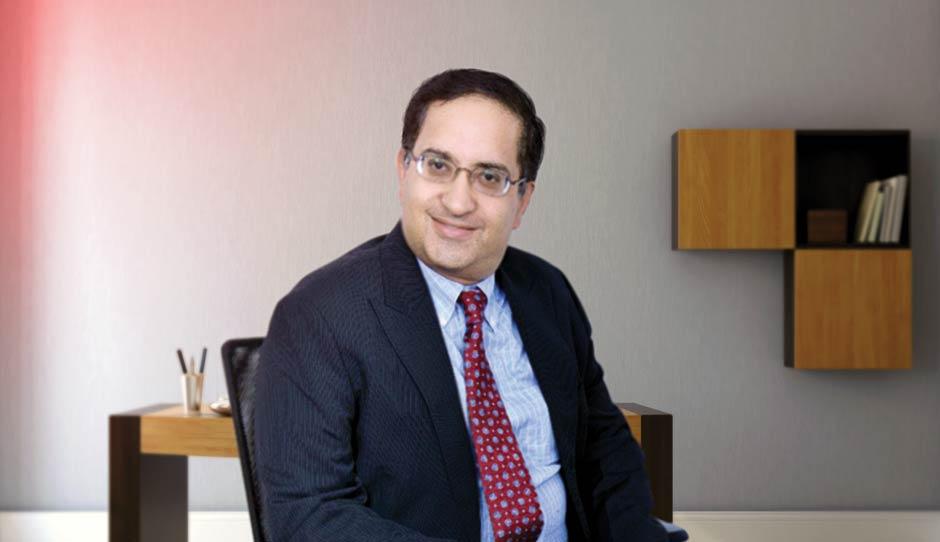From Consensus to Conclusion: Rahul Sahgal, Annik Technology
- BY Shreyasi Singh
 In Innovation
In Innovation 9411
9411 0
0

Rahul Sahgal is the founder and CEO of Annik Technology Services, a data and analytics outsourcing company. Initially providing software development services, Annik began offering data services in 2000. The turn of the century turned the company’s fortunes around. Sahgal believes it’s the company’s ability to read market trends, and adapt it’s offerings to fit the new gaps created in the market. He credits this to their being the “oldest start-up” you’ll ever meet.
How would you characterise your leadership style? How has your individual style and the company’s leadership philosophy changed over the years?
From my perspective, I try to follow a leadership style that is consensus-driven. The top-down approach of the manufacturing industry style isn’t going to work. We have always been consensus-driven but what has changed is our method of reaching consensus. As we’ve become a company with presence across the globe, we have a wide range of workplace cultures and style across our offices. If I had to define it, I would say our corporate style is American in essence because it is based on treating everybody equally and allowing everybody to have a voice.
It isn’t enough to have consensus. I make sure we have an objective of getting to a conclusion. As the CEO, what I ensure is that an outcome is always reached—it’s important to do that. A collaborative, consensus-getting mechanism doesn’t mean one should only keep talking about an issue. It’s important to reach a conclusion whatever that is. Also, once I have everybody’s buy-in, I do believe diktats should be issued to make sure we achieve our targets.
How do you think your employees view you?
I don’t closely evaluate or track employee perception. We did have an off-site about a month ago for 40 people, and there was one element in terms of feedback that did emerge about me: people seemed to have the faith that I do well on providing a vision.
I find good qualities that are worthy to have in almost everybody. There isn’t any one person who I look up to.”—Rahul Sahgal, Annik Technology
Who do you look up to as a model leader? What about them is remarkable?
I get asked this question a lot. I find good qualities that are worthy to have in almost everybody. There isn’t one person alone who I look up to. For example, I look up to Bill Gates for driving a technology company. For me, inspiration comes from an amalgamation of scientists such as Albert Einstein, and other world leaders. I try to shamelessly learn and copy from those I admire. I make it a point to listen attentively to what leaders say. But, even more importantly, I pay attention to how they say it. How you communicate becomes as crucial sometimes as what you say.
What attribute do you think is a gap for your personal leadership? Are you actively working on changing that?
All of us have to evolve. We are close to a $25 million company. To grow the company from beyond this point, all our personalities need to change. At the juncture Annik is in, I think we need to be more structured in our management approach. One thing we have recently introduced was a company-driven scorecard across a range of parameters. I own that scorecard, and it is my responsibility to make sure we’re hitting our targets. The scorecard is helping us achieve our goals in a more structured way.
What are your proudest of having changed, or adopting, in your leadership journey so far?
We have reinvented ourselves at least three times: added new service clients, introduced consulting managed service. Personally, I feel that has been my biggest win so far—of being able to correctly read the market, and align it to what we can do, and what else we can add to the mix. See, it’s important to do exciting things but that excitement shouldn’t come from something way beyond what your core skills are. We’ve been very adaptive, very responsive to trends. Actually, we very proudly say all the time that we’re the oldest start-up you’ve ever met.
For a company, what is the biggest danger of having a founder-CEO helm it?
When the entrepreneur is the CEO sometimes you can’t separate yourself from the company. I had many opportunities where I could’ve brought in investment but I’ve never enjoyed the thought of somebody else running the show. It isn’t about financial equity or monetary stake. It’s more to do with the freedom of decision making. As the entrepreneur, for all major decisions, I do have the ultimate decision making power. But, I sometimes think whether that has always worked to our advantage. Am I too emotionally involved?





























Add new comment